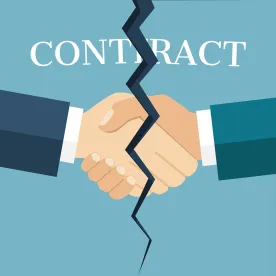In addressing whether a non-exclusive copyright licensee was permitted to use a commercial printing service in furtherance of its “non-commercial” rights granted by a public license, the US Court of Appeals for the Second Circuit affirmed a Fed. R. Civ. Pro. 12(b)(6) dismissal, explaining that principles of agency law require express prohibitions in a license in order to restrict a non-exclusive licensee’s use of commercial services in the exercise of its license. Great Minds v. FedEx Office and Print Services Inc., Case No. 17-808-cv (2d Cir., Mar. 21, 2018) (Carney, J).
Great Minds offers royalty-free licenses of its educational materials to the public for non-commercial purposes. Great Minds asserts that its licenses should be read as including an explicit limitation against the employment of commercial print shops by the non-commercial licensees. Instead, Great Minds requires any commercial actor (e.g., a commercial print shop) to seek its own negotiated license.
Great Minds sued FedEx, which had been printing the copyrighted materials subject to several school districts’ non-commercial licenses and at the direction of the school districts in the exercise their non-commercial rights. It is not disputed that the licensed school districts only use FedEx commercial print services in furtherance of their educational (i.e., non-commercial) activities. On FedEx’s motion, the district court dismissed Great Minds’ action for copyright infringement. Great Minds appealed, seeking de novo review.
In affirming the district court, the Second Circuit explained that “[a]pplying well‐established agency principles, we conclude that licensees may use third‐party assistance in exercising their rights under non‐exclusive copyright licenses unless the license clearly states otherwise.” Specifically, the Court focused on three aspects: (1) the text of the license, (2) the “downstream recipients” provision and (3) the reservation of rights.
First, the Court found that the license itself was not explicit as to the permissibility of employing third-party commercial services. The license terms simply allowed the licensee to “share” the material with “the public by any means or process that requires permission under the licensed rights.” As construed by the Court, “the term ‘share’ encompasses the various types of reproduction and dissemination activities that require permission from the copyright holder; [but] does not expressly describe a right to enlist the services of third parties in performing those activities.”
Next, the Second Circuit looked at the “downstream recipients” provision, which made each recipient of licensed materials capable of obtaining an identical license themselves, and found the clause unpersuasive in clearly prohibiting school districts from seeking FedEx’s services because it failed to account for the sine qua non in a world of corporate entities—agency relationships. Under Great Minds’ theory, not only would the downstream provisions purport to make each teacher and administrator its own independent licensee, it would also make an independent licensee out of other non-affiliated corporate entities and their respective individual employees. As the Court put it, “Great Minds fails to account for the mundane ubiquity of lawful agency relationships, in which ‘one person, to one degree or another . . . , acts as a representative of or otherwise acts on behalf of another person.’” The Court found that such a radical deviation from the generally understood meaning of the license grant must be stated more explicitly.
Lastly, the Second Circuit looked to the catch-all reservation of rights provision in the license, noting “the unambiguous import of this provision is to reserve [Great Minds’] right to collect royalties from a licensee if the licensee exceeds the scope of a license by, for example, selling copies of the Materials” (emphasis in original). The Court found the argument that the licensee exceeded the scope of the license to have “little persuasive force, as it merely begs the question whether FedEx should properly be considered a licensee or an agent of the licensee school districts.”
Accordingly, finding no explicit prohibition against the use of third-party commercial printing services in furtherance of the school district’s non-commercial rights, the Second Circuit affirmed the district court’s dismissal.
Practice Note: A license is a contract. Avoid ambiguity where appropriate in all circumstances.




 />i
/>i

